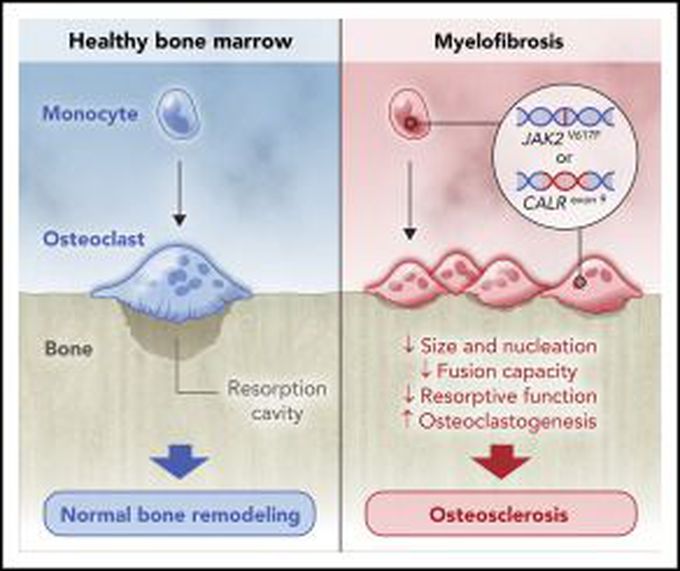

Iqraabout 2 years ago

What causes myelofibrosis?
Scientists don’t know what causes myelofibrosis, but they know it’s associated with DNA changes in specific genes. Proteins called Janus-associated kinases (JAKs) play a role in myelofibrosis. JAKs regulate the production of blood cells in bone marrow by signaling the cells to divide and grow. If the JAKs become overactive, too many or too few blood cells will be produced. About 60% to 65 % of people with myelofibrosis have a mutation in the JAK2 gene. Another 5% to 10% have a mutation in the myeloproliferative leukemia (MPL) gene. A mutation called calreticulin (CALR) accounts for approximately 20% to 25 % of myelofibrosis cases
Other commentsSign in to post comments. You don't have an account? Sign up now!

